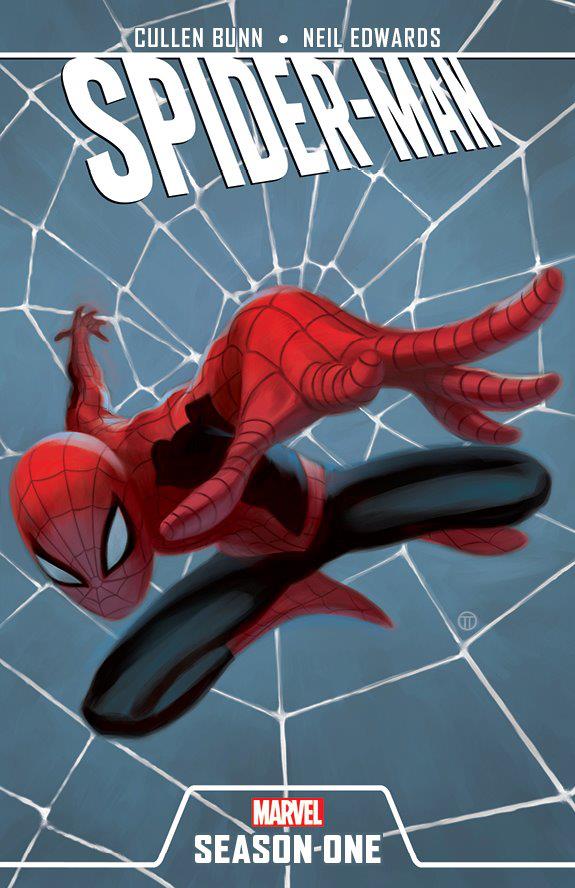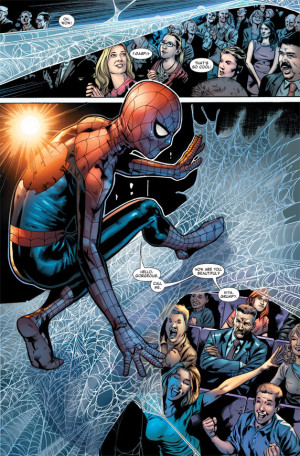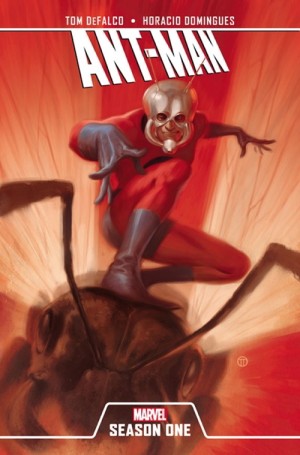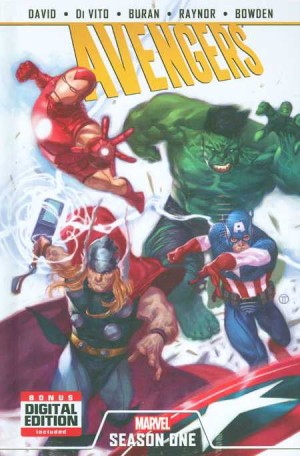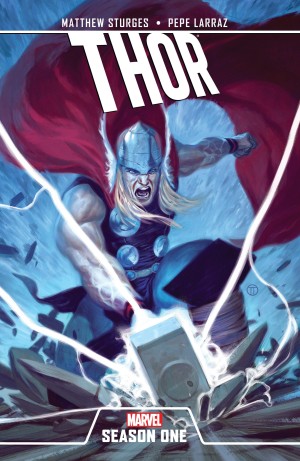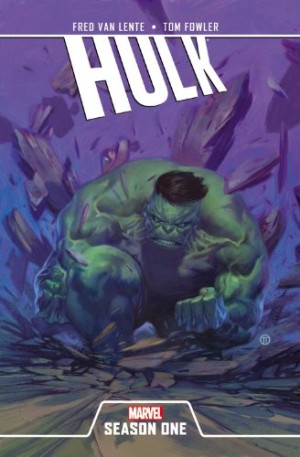Review by Rob Walton
Spider-Man: Season One retells the (now tiresome) origin of Spider-Man along with an updated version of the Vulture’s introduction in the story that followed. Also included is a reprint of The Avenging Spider-Man 1. The main story is competently written with a few good post-modern gags that work well in context. The art is a little maudlin at times as characters over-emote, but over all, it’s well drawn and attractive with a few excellent set pieces. The Vulture in particular is well handled.
The stated purpose of the Marvel: Season One series is: “…a new initiative aimed at attracting new comic fans from the millions of people who know Marvel characters from movies, television, and video games. Each Season One volume is a stand-alone tale designed to give readers a complete story, modernizing the seminal origins of these super-hero icons while also offering new revelations for long-time fans. This is the real Marvel Universe that current fans know and love, updated for a new generation.”
That statement is filled with so many contradictions it’s impossible to discuss them all within the restrictions of this review. The most important question is, who is this book for? Given the tone of the story, it’s not for “long-time fans” who will no doubt already own one of the various reprints of Steve Ditko’s original run on the character. There is nothing of interest to current fans who will skip or skim the first half of the book and maybe read the less familiar Vulture story. The problem there is that the Vulture is a minor villain these days, so why would current fans invest money in half a story about a villain they probably don’t care about? As for the reprint, current and long-time fans probably already own it or have read it, so it’s of even less an incentive. Whatever “new revelations” there are in these stories, if you can find them, they probably aren’t worth your time or money.
That leaves, pretty much, the kids. As a piece of juvenilia, Spider-Man: Season One works pretty well. If you have a pre-teen child who has only seen a movie or two, or watched an animated series, this graphic novel may resonate with them. Its emotions are sincere enough, and if the reader does not have any preformed prejudices, they’ll probably enjoy both halves of the story.
All of which begs the question “Why?”. Compared to the originals, as crude and innocent as comics were in 1962, the stories work much better in 11-14 pages than 100, and the characters were as well defined then as they are now. With such fine reprints available, such as the Spider-Man Epic Collection: Great Power, the need for Marvel Season One seems even less necessary. Lastly, given the character’s fifty year history this graphic novel feels ironically incomplete, given everything that follows. What won’t be incomplete, is your collection, should this series escape your attention entirely.
